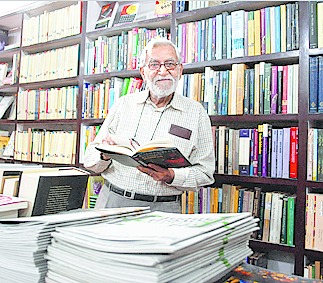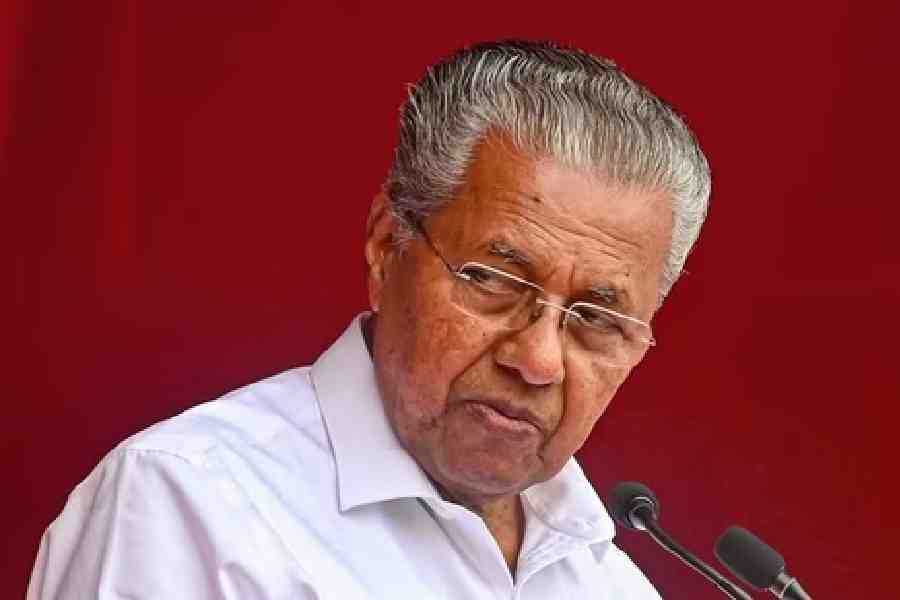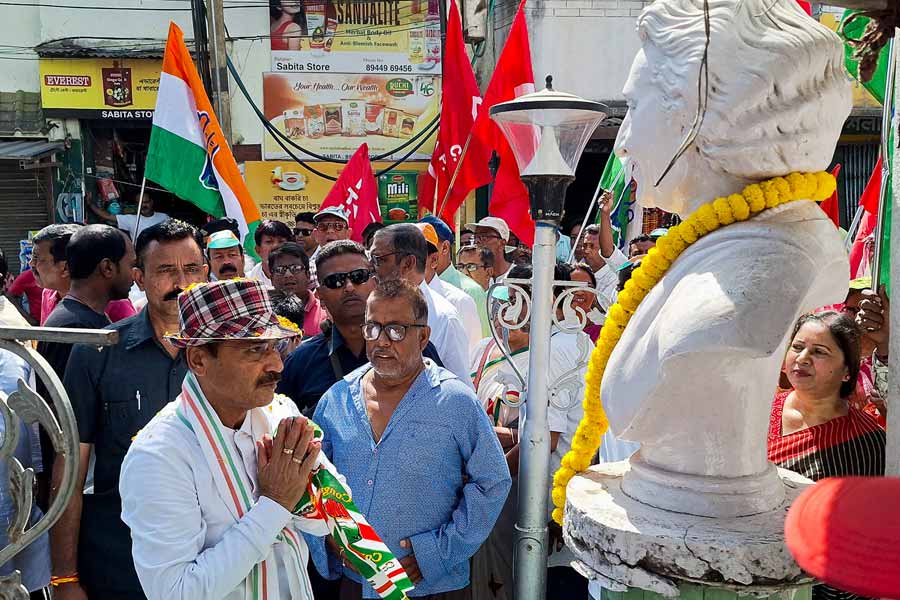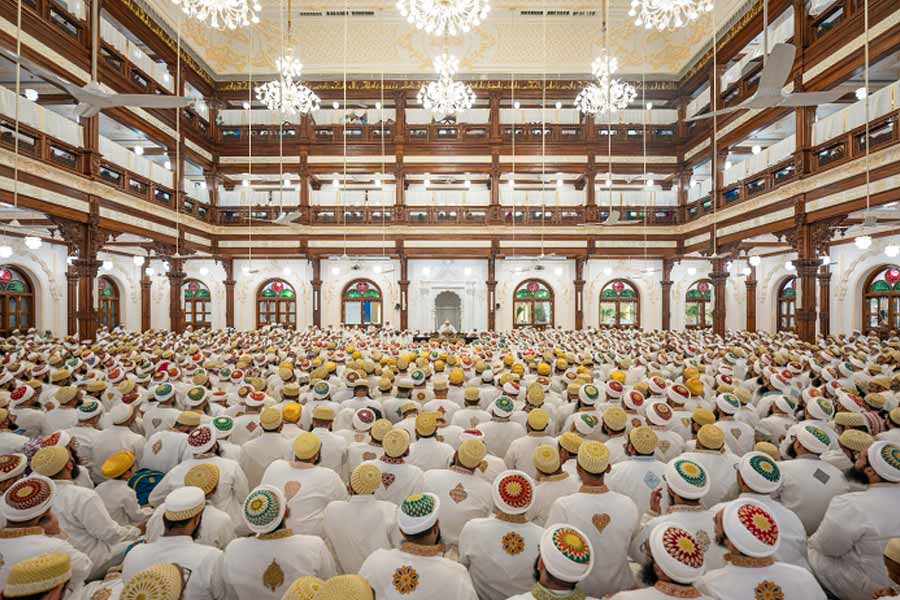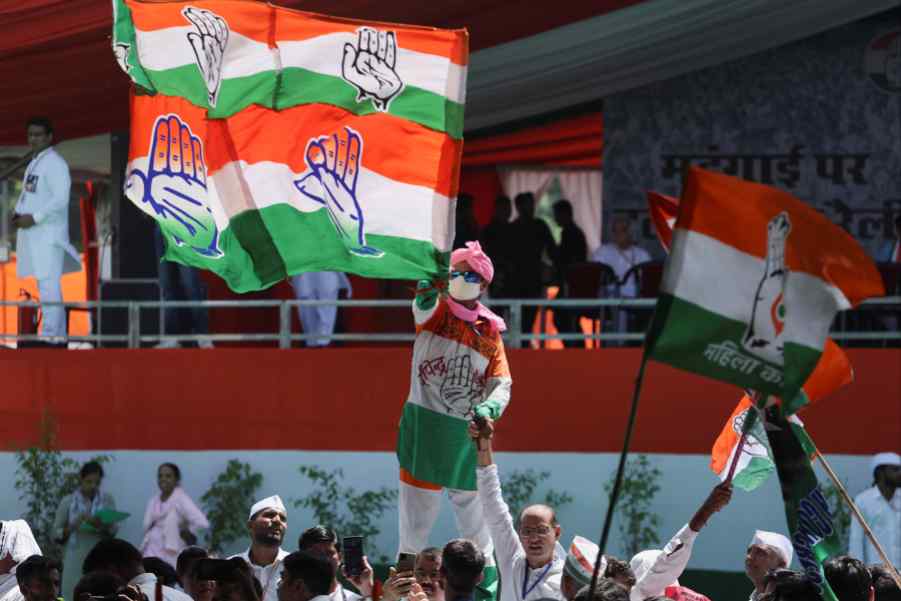
For me, the name Ram Advani was no more than a rubber stamp. By the time I had finished my reading of Enid Blyton and Billy Bunter my life had become obsessed with cricket. It was my first entry point into the world of adults. Reading had already become a habit. So, almost inevitably, in a house full of books, I turned to my father's large collection of cricket books. At the bottom right hand corner of the first page of many of the books was a stamp in red which read Ram Advani, Bookseller, Hazratganj, Lucknow. The words were neatly laid out in four lines. Somewhere in my mind the name and the image of the stamp remained till a hot March afternoon in 1977 changed everything.
I had already been selected as an Inlaks Scholar to do a D.Phil in Modern History at St Edmund Hall, Oxford. Barun De, with whom I had begun my research on 1857 in Awadh, had sent me away from Calcutta to Lucknow to study the documents in the Uttar Pradesh State Archives. I arrived in Lucknow in the afternoon and as the sun began to set I strolled down Hazratganj. And suddenly, as if out of nowhere, a signboard appeared next to a cinema hall. It said Ram Advani, Bookseller. All sorts of bells rang in my head and almost without intending to I found myself inside the bookshop.
After looking around for a bit, I asked an old gentleman if Ram Advani was still around. He assured me that indeed he was and if I took the stairs up to the mezzanine floor I would find him. I did just that out of curiosity more than anything else and found myself sitting face to face with a genial man with a well-trimmed white beard in an air-conditioned cubicle with papers and books all around. I didn't quite know what to say so I began with my father and his books and said that my father had lived in Lucknow briefly for a couple of years in the late 1940s. Would Mr Advani remember him? He asked my father's name and then with a gleam of recognition in his eyes he said, "Of course, I remember Mr Mukherjee, he was an avid reader and I used to send him books even after he had left Lucknow.'' He then produced an old ledger which had my father's account. I was relieved to find that no money was owing. A rubber stamp had become a man. That meeting was the beginning of a long friendship that ended the other day when Ram Advani died.
He insisted I call him Ram and that is what I called him from that afternoon. His bookshop became my first port of call after I finished my daily work in the archives. We would chat mostly about books and scholars who were Ram's friends and loyal customers. This became a routine every time I visited Lucknow for my research. Away from Lucknow, I ordered books from him. Those were the days of the post. An envelope addressed to "Ram Advani, Bookseller, Hazratganj, Lucknow'' would always reach him. And within a few weeks the ordered book would arrive beautifully packed and bearing that all too familiar stamp.
Ram was an incredible bookseller, knowledgeable with an uncanny gift of knowing what exactly his regular customers wanted. He was also a thorough gentleman, polite and gracious to a fault. He was delighted with my first book, Awadh in Revolt 1857-58: A Study of Popular Resistance and loved selling it. With his death I have lost not only a friend but the best promoter of my book.
In my mind's eye, I can picture an alcove in heaven where book lovers and readers from India meet - Ravi Dayal, Sham Lal, Ravi Vyas, Nirmalya Acharya and P.K. Ghosh (the last two in their immaculate white dhoti and kurta). From last week, Ram Advani also sits in that alcove to chat about books, the ways of bookmaking and the writers he had known. It is a brightly lit space because it is inhabited by some of the rarest of human beings.

